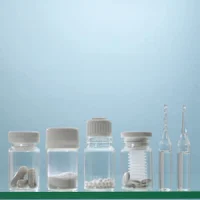As countries around the world become more accustomed to living with COVID-19, an important topic of discussion has been the medium-term and long-term impact of COVID-19 on respiratory function and health-related quality of life.
Most published studies on COVID-19 include patients with varying degrees of severity and evaluate patients up to six months after a COVID-19 episode. None of these studies specifically focus on patients admitted to the ICU with severe COVID-19. Therefore, it is still unclear how COVID-19 could impact health-related quality of life and breathing comfort up to 12 months after ICU admission.
The purpose of this study was to describe health-related quality of life and dyspnoea of COVID-19, two months and 12 months after a stay in the ICU. Ninety-four patients were enrolled in the study.
Findings show that patients who survived COVID-19 were 9% below their baseline body weight two months after ICU admission. 13% of patients were still receiving oxygen at the 2-month visit. 47% of patients had a restrictive syndrome, 10% had an obstructive syndrome, 69% had a decreased diffusing capacity for carbon monoxide, and 56% had respiratory muscle weakness. 26% of patients could not perform a 6-min walk test due to muscle weakness.
At 12 months, patients who survived COVID-19 were 3% below their baseline body weight. 16% reported persistent pain or dysesthesia, 16% reported decreased range of motion of large joints, 27% reported an altered appearance of the neck skin, and 22% reported upper airway symptoms, including voice change. 65% of patients reported at least one symptom that was not present before their ICU admission. 61% of patients who were previously working returned to work.
Overall, these findings show that twelve months after ICU admission or COVID-19 and subsequent rehabilitation, a large proportion of COVID-19 patients reported alterations of health-related quality of life, dyspnoea and symptoms that were not present before ICU admission. A substantial portion of these patients had not returned to work.
These findings highlight the importance of identifying patients with a higher risk of poorer 12-month quality of life.
Source: Annals of Intensive Care
Image Credit: iStock
References:
Demoule A, Morawiec E, Decavele M et al. (2022) Health-related quality of life of COVID-19 two and 12 months after intensive care unit admission. Ann. Intensive Care. 12,16.
Latest Articles
quality of life, dyspnoea, respiratory function, COVID-19
Medium-Term and Long-Term Impact of COVID-19










